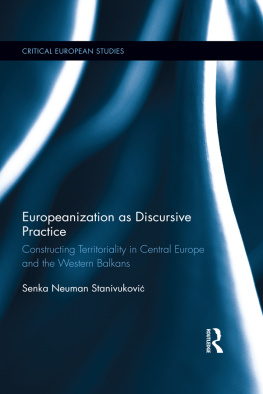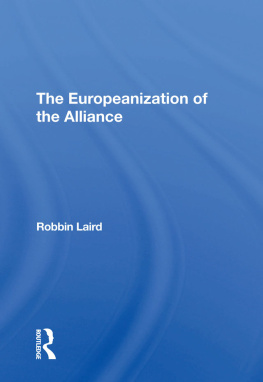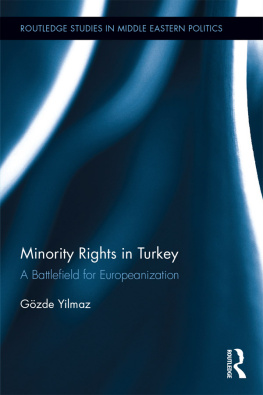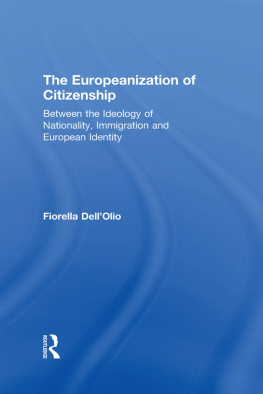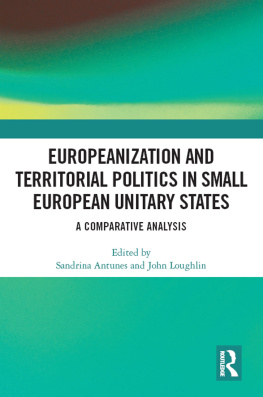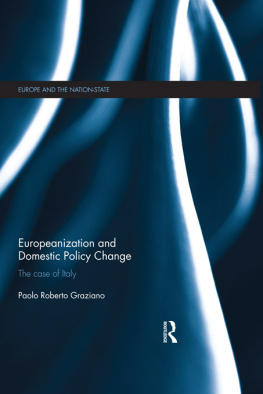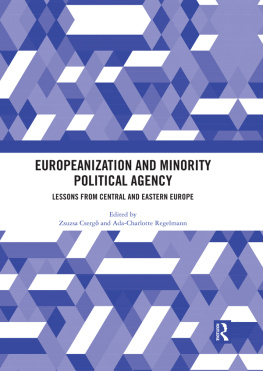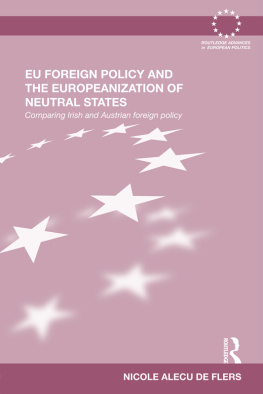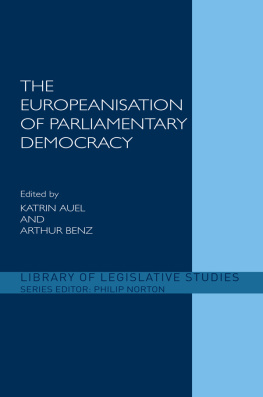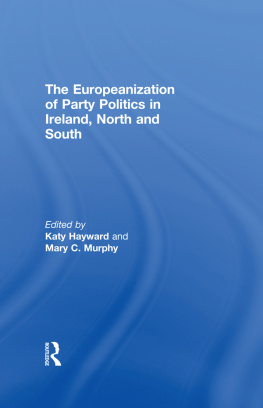Europeanization as Discursive Practice
Europeanization as Discursive Practice adopts a poststructuralist reading of Europeanization to study the effects of EU accession in the light of political territoriality and consequent state-building processes in the EU and Central and Eastern European countries (CEECs) and the Western Balkans, from 19902013.
Focusing on how domestic actors have framed Europe/EU norms in the debates on territorial reforms and the implications of this framing on policy reforms, it asks how competing articulations of the EU and its norms construct state territoriality in the given political and policy debates. The book argues that the European Union acted as a discursive force and a challenge to the established structures of understanding of territoriality, statehood, and power. With this, the author proposes a new research model for the study of Europeanization that goes beyond the neoinstitutionalist account of the EUs policy/norm transfer to member/non-member states.
This text will be of key interest to students, scholars and practitioners of European integration, EU foreign policy, enlargement policy, and regional policy and territoriality in post-socialist spaces.
Senka Neuman Stanivukovi is an Assistant Professor at the University of Groningen, the Netherlands, and is a part of the Euroculture Erasmus Mundus program team. She is also a guest lecturer at the State University of New York (SUNY), USA.
Critical European Studies
Edited by Yannis A. Stivachtis, Virginia Tech, USA
Formerly co-edited with Hartmut Behr, Newcastle University, UK
For more information about this series please visit: https://www.routledge.com/Critical-European-Studies/book-series/CEU
1 Mapping European Empire
Tabulae Imperii Europaei
Russell Foster
2 Revisiting the European Union as an Empire
Edited by Hartmut Behr and Ioannis A. Stivachtis
3 Unleashing Social Justice through EU Public Procurement
Antoinette Calleja
4 European Identity Revisited
New approaches and recent empirical evidence
Edited by Viktoria Kaina, Ireneusz P. Karolewski and Sebastian Kuhn
5 Discourses and Counter-discourses on Europe
From the Enlightenment to the EU
Edited by Manuela Ceretta and Barbara Curli
6 The Democratic Quality of European Security and Defence Policy
Between Practices of Governance and Practices of Freedom
Evangelos Fanoulis
7 Lobbyists and Bureaucrats in Brussels
Capitalisms Brokers
Sylvain Laurens
8 Europeanization as Discursive Practice
Constructing Territoriality in Central Europe and the Western Balkans
Senka Neuman Stanivukovi
First published 2018
by Routledge
2 Park Square, Milton Park, Abingdon, Oxon OX14 4RN
and by Routledge
711 Third Avenue, New York, NY 10017
Routledge is an imprint of the Taylor & Francis Group, an informa business
2018 Senka Neuman Stanivukovi
The right of Senka Neuman Stanivukovi to be identified as author of this work has been asserted by her in accordance with sections 77 and 78 of the Copyright, Designs and Patents Act 1988.
All rights reserved. No part of this book may be reprinted or reproduced or utilised in any form or by any electronic, mechanical, or other means, now known or hereafter invented, including photocopying and recording, or in any information storage or retrieval system, without permission in writing from the publishers.
Trademark notice: Product or corporate names may be trademarks or registered trademarks, and are used only for identification and explanation without intent to infringe.
British Library Cataloguing-in-Publication Data
A catalogue record for this book is available from the British Library
Library of Congress Cataloging-in-Publication Data
A catalog record for this title has been requested
ISBN: 978-1-138-10053-4 (hbk)
ISBN: 978-1-315-65760-8 (ebk)
Typeset in Times New Roman
by Apex CoVantage, LLC
What is Europeanization? How should we define it? How should we explain it? Should scholarly work on Europeanization be primarily concerned with studying the effects of EU institutions on EU member states or should we examine Europeanization in light of a broader historical and geographical perspective? Is accession-driven Europeanization a linear or multifaceted process? Is Europeanization about compliance with the EUs acquis or is there more to it? To bring a new light to these and other questions that cut to the core of the Europeanization scholarship, this book starts from a simple premise. I argue that the direction and extent of Europeanization depends on domestic perception of Europe. How Europe is constructed and enacted in domestic discourses and practices defines how EU norms and rules will be adopted. To understand Europeanization in its full complexity, we need to understand the nexus between the perception of Europe and adoption of the EU norms and rules to domestic political and policy processes.
To unpack this nexus, the book offers a critical reading of the Europeanization process in line with the poststructuralist discourse theory of Laclau and Mouffe. In line with the understanding of social structures as inherently discursive, and therefore structuring as well as relational, Laclau and Mouffe bring the analytical attention to the actor while not slipping into ontological reductionism. What one says, thinks, and does is defined by a discourse, which is again altered by what one is saying, thinking, and doing. The adopted approach places the duality of the European discursive structure at the center of the research agenda; the European Union and its norms define domestic politics and policies, while being concurrently reproduced and contested by the very same. Such an approach shifts the ontological boundaries of Europeanization beyond the concept of compliance. A more complex interpretation of EU structure is introduced, which sees EU norms as inseparable from domestic perception and articulation of these norms. Thus, to answer the classic question of how EU integration and the European Union define domestic policies, politics, and polity, the established research model detaches Europe as a meaning system from the EUs institutional base and demands a more nuanced problematization of the actor. It redirects the empirical analysis towards interpreting the contested meanings of EU norms in the domestic setting. By referring to the Europeanization of domestic territoriality debates in EU candidate countries as the central empirical focus of this study, I ask how competing articulations of the EU and its norms (and the underlying meta-discourses on which these articulations draw) construct state territoriality in the given political and policy debates. The reminder of this introduction aims to situate the poststructuralist literature within the wider field of Europeanization theorizing. Further, it addresses the methodological concerns in view of the established focus on the comparative study of the debates around territorial reforms in the Czech Republic and Slovakia and a single case study of Croatian territoriality discourses, which are situated in a broader context of shifts in territorial organization in the post-communist Central and Eastern Europe and Western Balkans, respectively.

